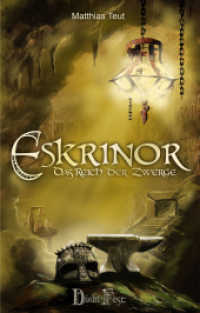- ホーム
- > 洋書
- > ドイツ書
- > Humanities, Arts & Music
- > Humanities
- > general surveys
Description
This volume critically interrogates non-Western frameworks within environmental humanities, seeking to challenge and deconstruct dominant Western paradigms. Through a range of interdisciplinary contributions, the book explores alternative epistemologies, including Indigenous, postcolonial, and regional perspectives from Eastern Europe, Latin America, and the Global South. It addresses the intricate relations between humans and the environment, emphasizing localized knowledge systems and ecological philosophies. By engaging with diverse cultural, historical, and geographical contexts, the work aims to decolonize environmental discourse and advance more inclusive, pluralistic theoretical approaches to global ecological challenges. Reconfiguring Paradigms: Non-Western Approaches in Environmental Humanities This volume critically interrogates non-Western frameworks within environmental humanities, seeking to challenge and deconstruct dominant Western paradigms. Through a range of interdisciplinary contributions, the book explores alternative epistemologies, including Indigenous, postcolonial, and regional perspectives from Eastern Europe, Latin America, and the Global South. It addresses the intricate relations between humans and the environment, emphasizing localized knowledge systems and ecological philosophies. By engaging with diverse cultural, historical, and geographical contexts, the work aims to decolonize environmental discourse and advance more inclusive, pluralistic theoretical approaches to global ecological challenges. Malgorzata Sugiera is a Full Professor at the Jagiellonian University in Kraków, Poland, and Head of the Department for Performativity Studies. Her research concentrates on performativity theories, speculative and decolonial studies, particularly in the context of the history of science. Gabriela Jarzebowska-Lipinska is an assistant professor at the Faculty of Artes Liberales, University of Warsaw, Poland. She works in the fields of critical animal studies and environmental humanities. Aleksandra Ross holds a PhD in Cultural and Religious Studies, focusing on post-nuclear spaces and environmental humanities. Her research interests include biosemiotics, human-environment relationships, and the Anthropocene. Krzysztof Skonieczny is Assistant Professor at the Faculty of "Artes Liberales," University of Warsaw, Poland, where he is a member of the Techno-Humanities Lab.








